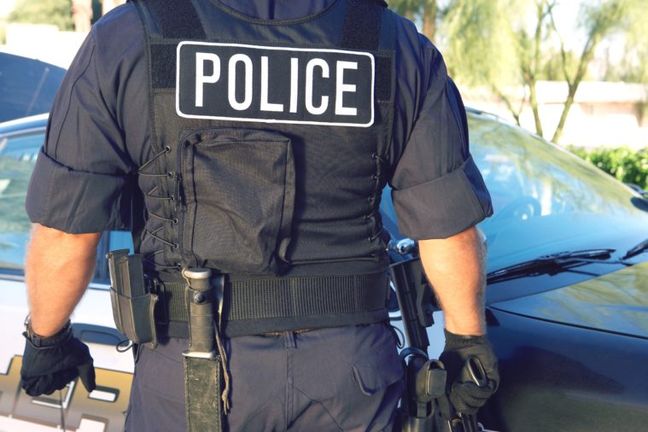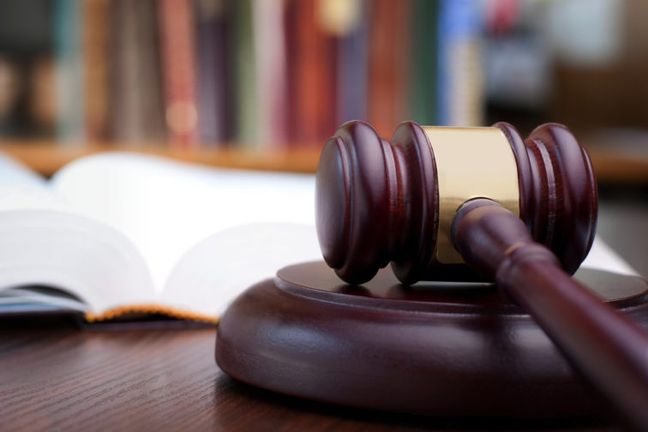Danko v. Conyers, 2018 WL 774443
Facts
Debra Danko filed a medical malpractice lawsuit against David Conyers, M.D., the doctor who performed carpal tunnel release surgery on Ms. Danko’s right wrist. Following the conclusion of Dr. Conyers’ post-operative care, Ms. Danko learned she contracted a serious bacterial infection from the surgery. Dr. Conyers did not test for infection during post-operative care. The severity of infection, however, required Ms. Danko to have her forearm amputated. She alleged Dr. Conyers was responsible for the amputation for failing to test for and detect the infection at a time when less drastic treatment options could have cured the infection.
Dr. Conyers alleged the amputation was unnecessary, asserting the affirmative defense of nonparty fault. According to Dr. Conyers, it was negligence of the physician who elected to amputate Ms. Danko’s forearm that caused her loss. At trial, the court excluded evidence of the nonparty physician’s negligence or fault because it felt such evidence would confuse the jury. Why? One of the main reasons is set forth in section 457 of the Restatement of Torts, which has been codified in Colorado law. Section 457 provides a negligent actor who is liable for injury to another is also liable for subsequent bodily harm caused by “normal efforts of third persons in rendering aid which the other’s injury reasonably requires, irrespective of whether such acts are done in a proper or a negligent manner.” Section 457 provides one exception to this rule. Specifically, the initial tortfeasor cannot be liable for injuries caused by the negligence of another treating provider where such care is “extraordinary.” Extraordinary care functions as an intervening and superseding cause, which breaks the causal link between the negligent acts of the initial torfeasor and the injuries resulting from subsequent care.
At trial, Dr. Conyers did not present any evidence Ms. Danko’s amputation amounted to extraordinary care. To the contrary, both Dr. Conyers and his expert testified an undiagnosed and untreated infection such as the one Ms. Danko contracted (a) would make subsequent medical treatment foreseeable, and (b) such treatment could lead to amputation.
Judgement was entered in favor of Ms. Danko. Dr. Conyers appealed.
Holding
The Court of Appeals, affirmed judgment in favor of Ms. Danko. The Court of Appeals reasoned, Dr. Conyers did not present any evidence that Ms. Danko’s amputation was extraordinary medical care. As such, the trial court did not abuse its discretion in excluding evidence of nonparty negligence or fault.
Marso v. Homeowners Realty, Inc., 2018 WL 775629
Facts
Sam and Audrey Marso purchased a home with the assistance of their real estate agent, Elly Dilbeck. Two years after the purchase, the Marsos learned their home was built on top of radioactive uranium waste, exposing them to potential health hazards. This prompted the Marsos to file a lawsuit against Ms. Dilbeck for negligence. In the same lawsuit, the Marsos also sued Ms. Dilbeck’s employer, Coldwell Banker Home Owners Realty, Inc. (“Coldwell”), on the ground it was vicariously liable for Ms. Dilbeck’s negligence.
Ms. Dilbeck reached a settlement with the Marsos for $150,000. The Marsos and Coldwell proceeded to trial, and the Marsos prevailed against Coldwell. The jury awarded $120,000 to the Marsos. Post-trial, however, the court set off the $150,000 settlement against the $120,000 jury verdict, and left the Marsos with a $0 recovery. The court did not calculate pre-judgment on the jury verdict prior to performing the set off.
The court concluded the $150,000 settlement exceeded the $120,000 verdict, entering judgment in favor of Coldwell. Coldwell also received $30,000 in prevailing party costs. Had pre-judgment interest been calculated prior to setoff, there is a chance the Marsos would have otherwise been the prevailing parties.
The Marsos appealed on the ground the court erroneously failed to calculate pre-judgement interest prior to setoff.
Holding
The Court of Appeals reversed and remanded. The verdict against Coldwell is based solely on vicarious liability. As such, the trial court appropriately set off the settlement of Coldwell’s agent against the jury verdict. Notwithstanding, the trial court erred in concluding pre-judgment interest did not accrue until after the setoff took place. The trial court should have calculated pre-judgment interest from the date the Marsos’ were injured to the date settlement was reached by the Marsos and Ms. Dilbeck.
Smokebrush Foundation v. City of Colorado Springs, 2018 WL 700096
Facts
The City of Colorado Springs operated a coal gasification plant for approximately six years during the 1920s, before converting the plant to a natural gas facility. The coal gasification process produced a hazardous byproduct known as coal tar. Coal tar contaminated the soil on the City’s property.
By the 1950s, the City began to gradually dismantle the plant. Thereafter, the City built an administrative office building for the Gas Department where the plant used to be. Years later in 2012, the City decided to demolish the office building and convert the entire parcel into an asphalt parking lot.
Demolition of the office building commenced in 2013. In the same year, the Smokebrush Foundation (“Smokebrush”) sued the City in tort for alleged injuries from airborne asbestos and coal tar emitted during the demolition process. Smokebrush, a non-profit wellness center, occupied property adjacent to the demolition site. In Smokebrushe’s complaint, it alleged the airborne contaminants from the demolition site were causing health problems for its building occupants.
In response, the City filed a motion to dismiss the lawsuit. The City argued it was immune from liability under the Colorado Governmental Immunity Act (the “Act”). Colorado state public entities are generally immune from tort-based lawsuits under the Act. (C.R.S.A. §§ 24-10-101, et seq.) There are, however, limited exceptions to this rule known as “waivers.” Smokebrush opposed the City’s motion on the grounds two of these waivers applied. Specifically, Smokebrush argued the City was subject to liability because (1) the asbestos-related injuries resulted from a dangerous condition of a public building, and (2) the coal tar-related injuries resulted from the operation and maintenance of a public gas facility. The trial court agreed with Smokebrush and denied the City’s motion. The City appealed, arguing the waivers did not apply. The appellate court agreed with the City and reversed the trial court’s ruling. Smokebrush then filed a petition for a writ of certiorari petitioned with the Colorado Supreme Court.
Holding
The Colorado Supreme Court affirmed the Court of Appeals decision in part and reversed in part. The Colorado Supreme Court agreed the City did not waive its sovereign immunity regarding the asbestos-related injuries. This was because the City did not create the dangerous condition of the airborne asbestos in constructing or maintaining a public facility. The Colorado Supreme Court, however, did not agree on the issue regarding Smokebrushe’s coal tar-related injuries. In this regard, the Court held the City waived its sovereign immunity. The Court reasoned, the old coal gasification plant qualified as a public gas facility within the meaning of the Act.

 Author: Emily Straub
Author: Emily Straub
 Cannabis Workers Allege Quota to Trim 4 Pounds a Day Violates the California Labor Code
Cannabis Workers Allege Quota to Trim 4 Pounds a Day Violates the California Labor Code
 The Ninth Circuit Reminds Us: Every Word Matters
The Ninth Circuit Reminds Us: Every Word Matters
 NO WAY, PRO SE! The Consequences of Abusing the Judicial System as a Pro Se Litigant in Colorado
NO WAY, PRO SE! The Consequences of Abusing the Judicial System as a Pro Se Litigant in Colorado
 Victim of Financial Mismanagement or Unlawful Retaliation? New Jersey City University Program Founder Claims School Retaliated After Reporting Alleged Sexual Harassment
Victim of Financial Mismanagement or Unlawful Retaliation? New Jersey City University Program Founder Claims School Retaliated After Reporting Alleged Sexual Harassment
 “Real Housewives” Gets a Reality Check
“Real Housewives” Gets a Reality Check
 Missing a Chapter: Insufficiency of Expert Deposition Testimony in Medical Malpractice Litigation
Missing a Chapter: Insufficiency of Expert Deposition Testimony in Medical Malpractice Litigation
 Crash Course: Why Summary Judgment Misses the Mark in Illinois Multi-Cause Limousine Crash Collision
Crash Course: Why Summary Judgment Misses the Mark in Illinois Multi-Cause Limousine Crash Collision
 Bitter Truths: Lead, Cadmium, and Defective Pleadings in California Chocolate Class Action
Bitter Truths: Lead, Cadmium, and Defective Pleadings in California Chocolate Class Action
 The Law of Unintended Consequences: Including Insurance Brokers in Litigation Strategy Communication May Waive the Attorney-Client Privilege
The Law of Unintended Consequences: Including Insurance Brokers in Litigation Strategy Communication May Waive the Attorney-Client Privilege
 Telemedicine: An Invaluable Weapon During the COVID-19 Crisis
Telemedicine: An Invaluable Weapon During the COVID-19 Crisis
 Physician Burnout: An Ongoing Crisis Increasing the Risk of Medical Malpractice Claims
Physician Burnout: An Ongoing Crisis Increasing the Risk of Medical Malpractice Claims
 New York Case Law Update
New York Case Law Update
 New Law Affecting the Scope of Confidential Settlement Agreements in Nevada
New Law Affecting the Scope of Confidential Settlement Agreements in Nevada
 California Case Law Update
California Case Law Update
 Work Product Protection for Third Parties via Personal Injury Protection Insurance
Work Product Protection for Third Parties via Personal Injury Protection Insurance
 Colorado Case Law Updates
Colorado Case Law Updates
 The Scope of Legal Malpractice Damages
The Scope of Legal Malpractice Damages